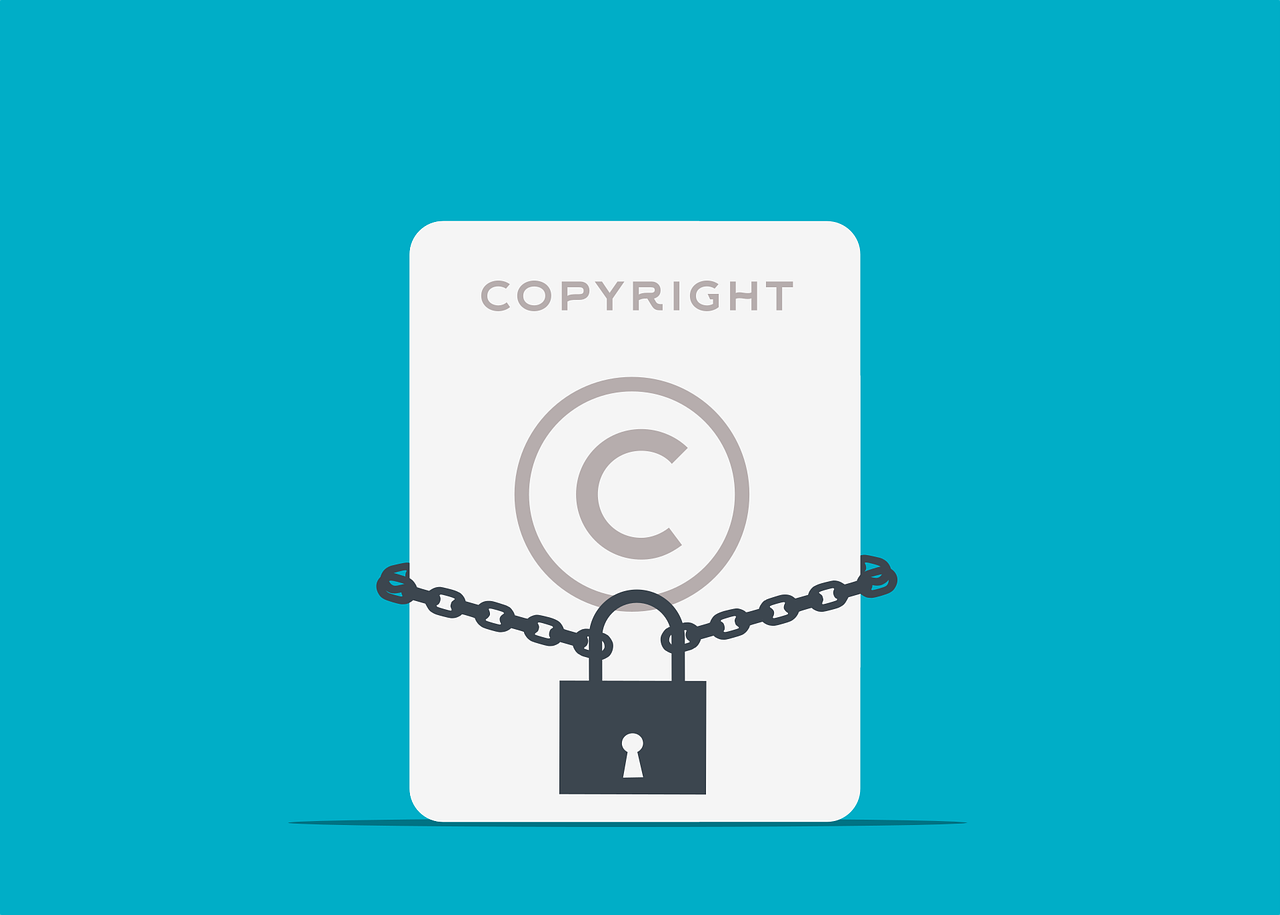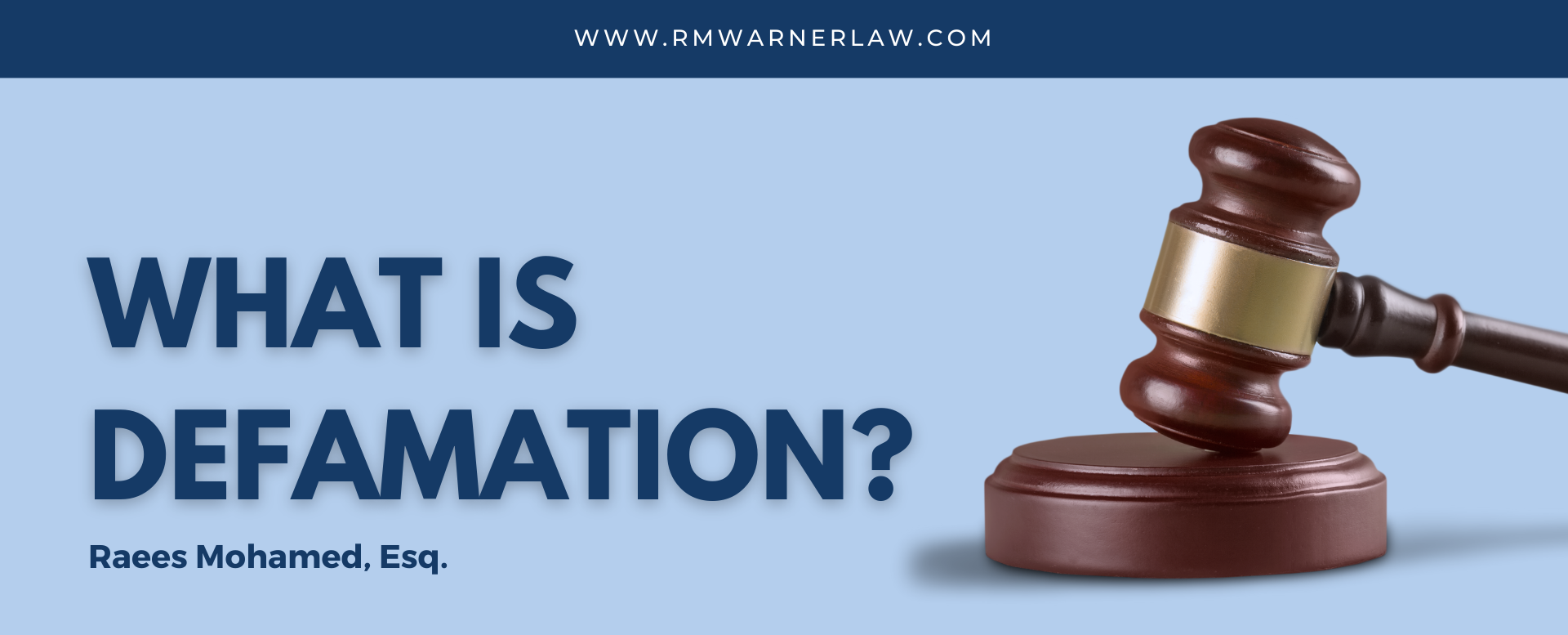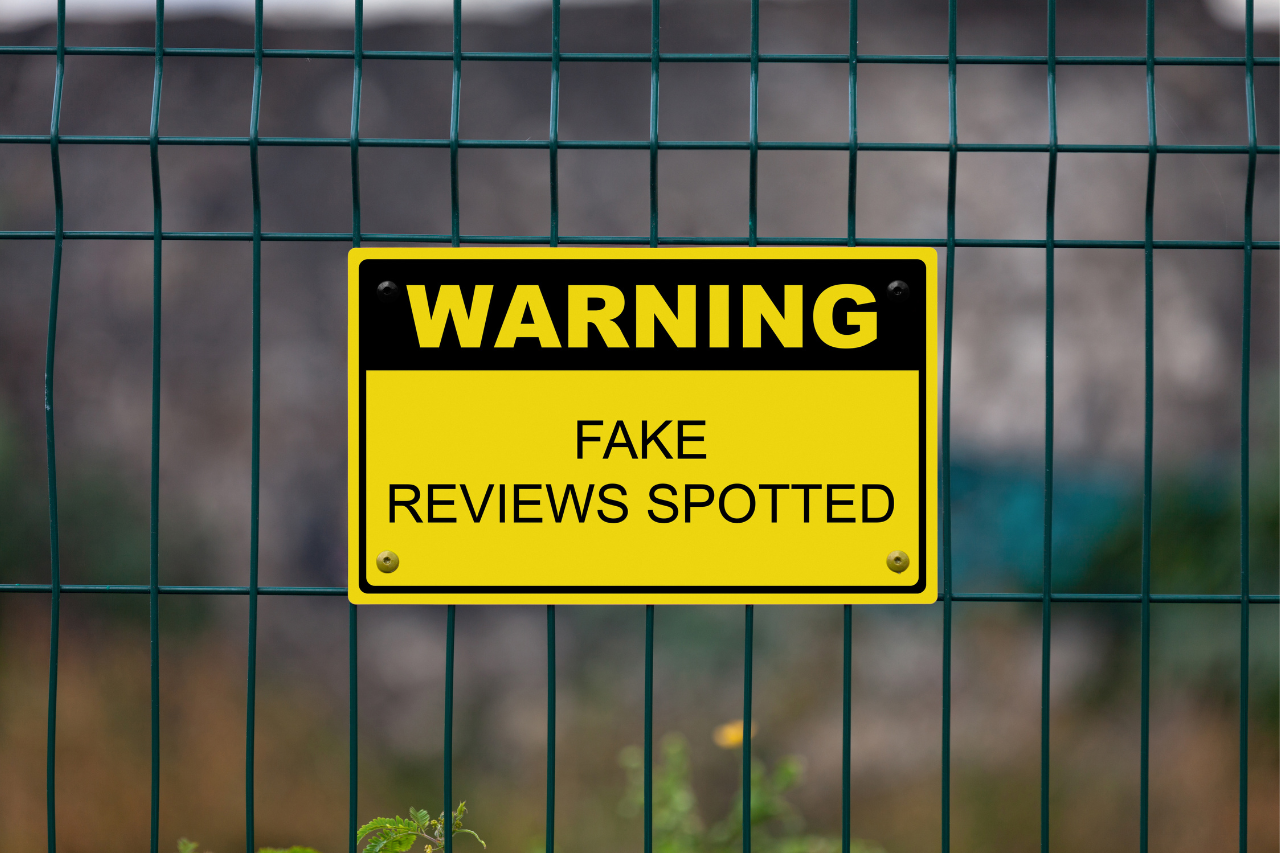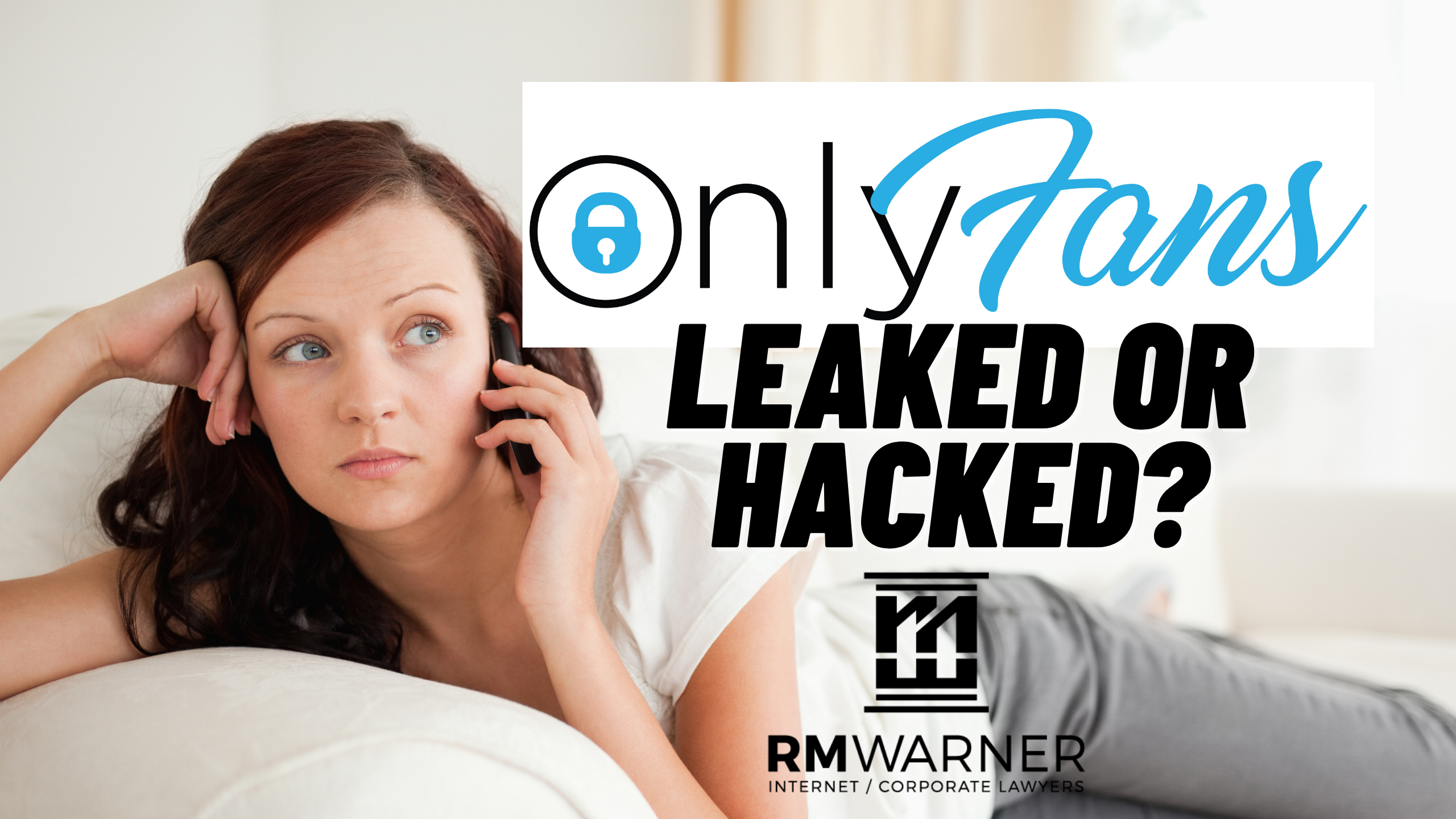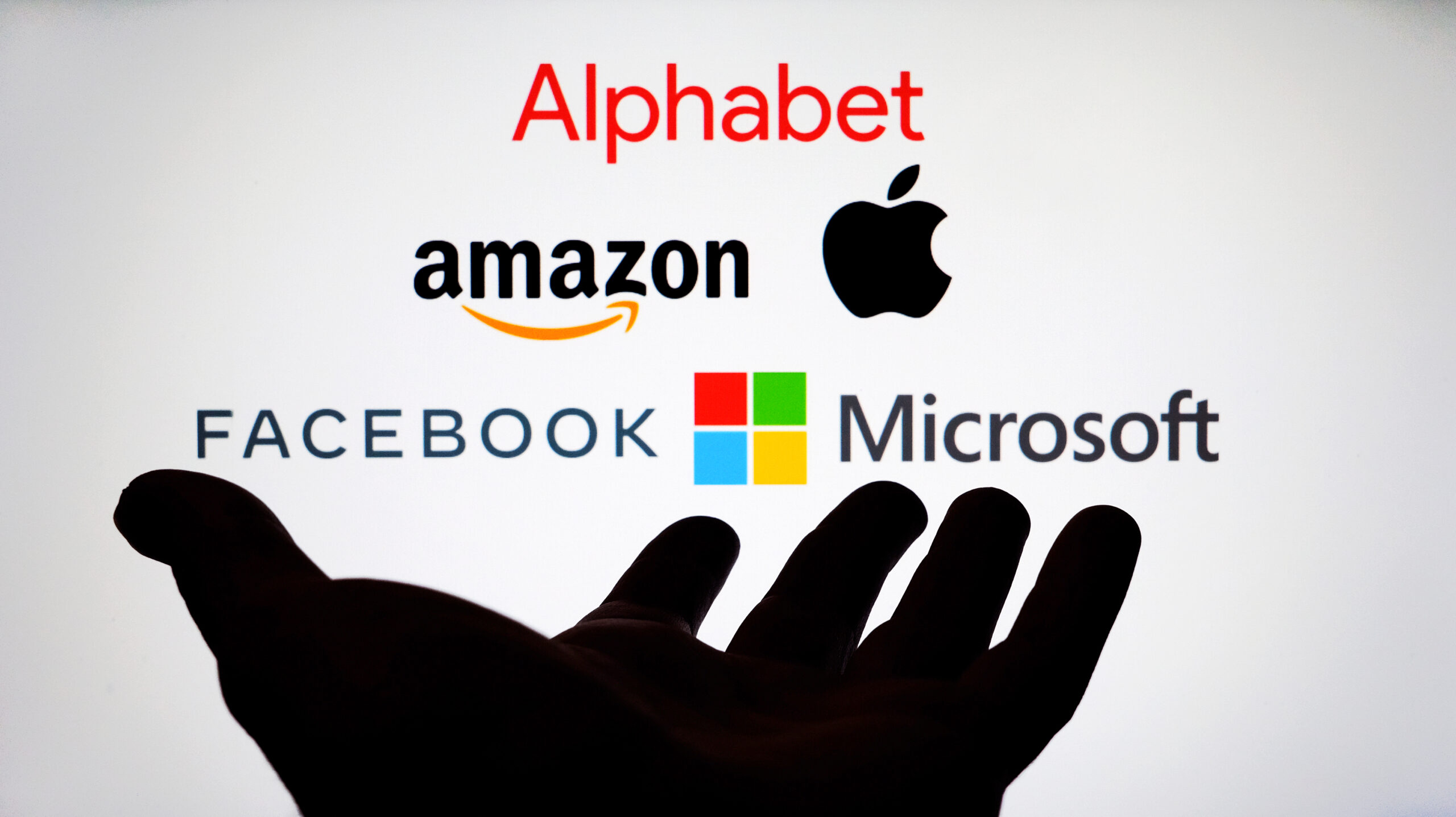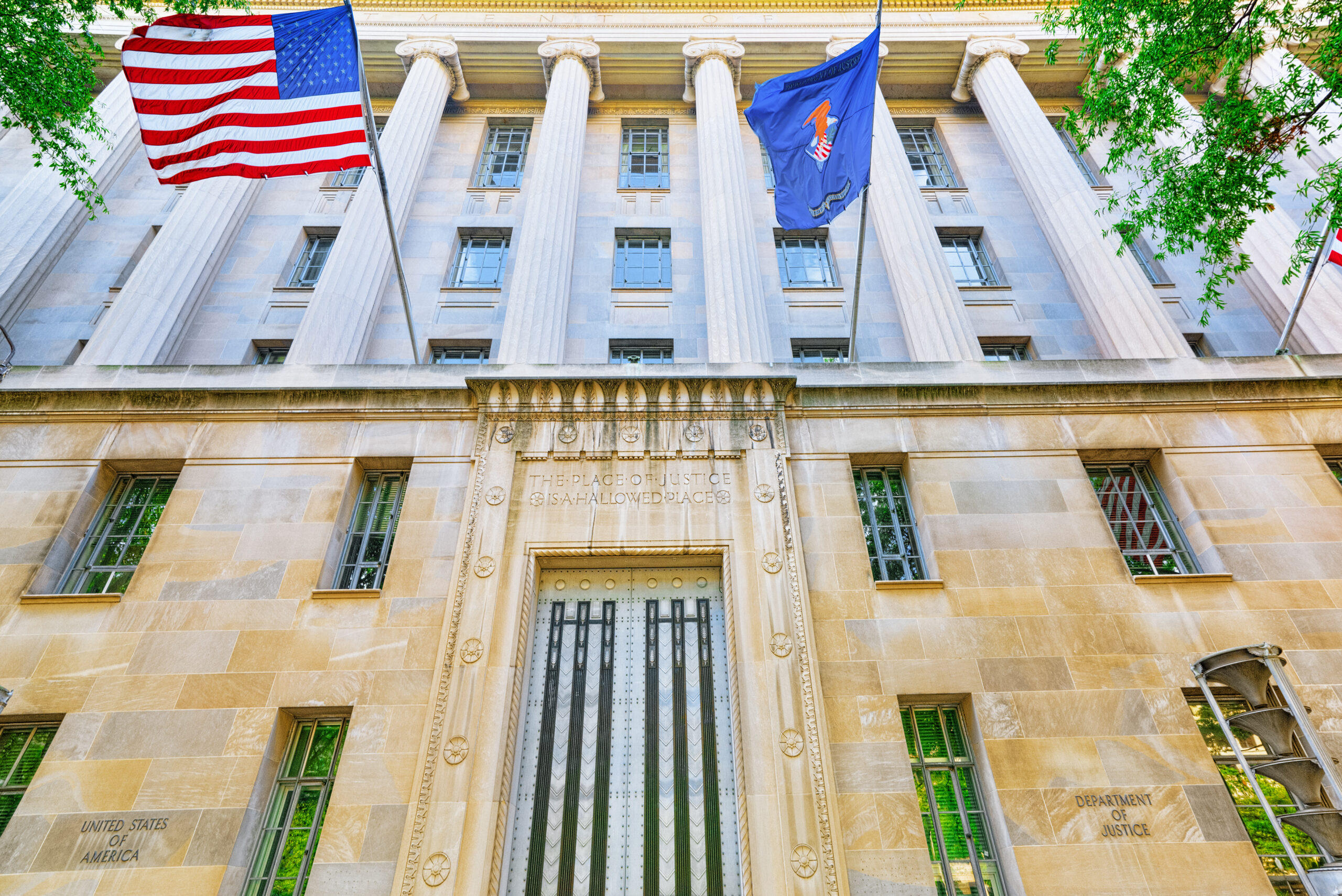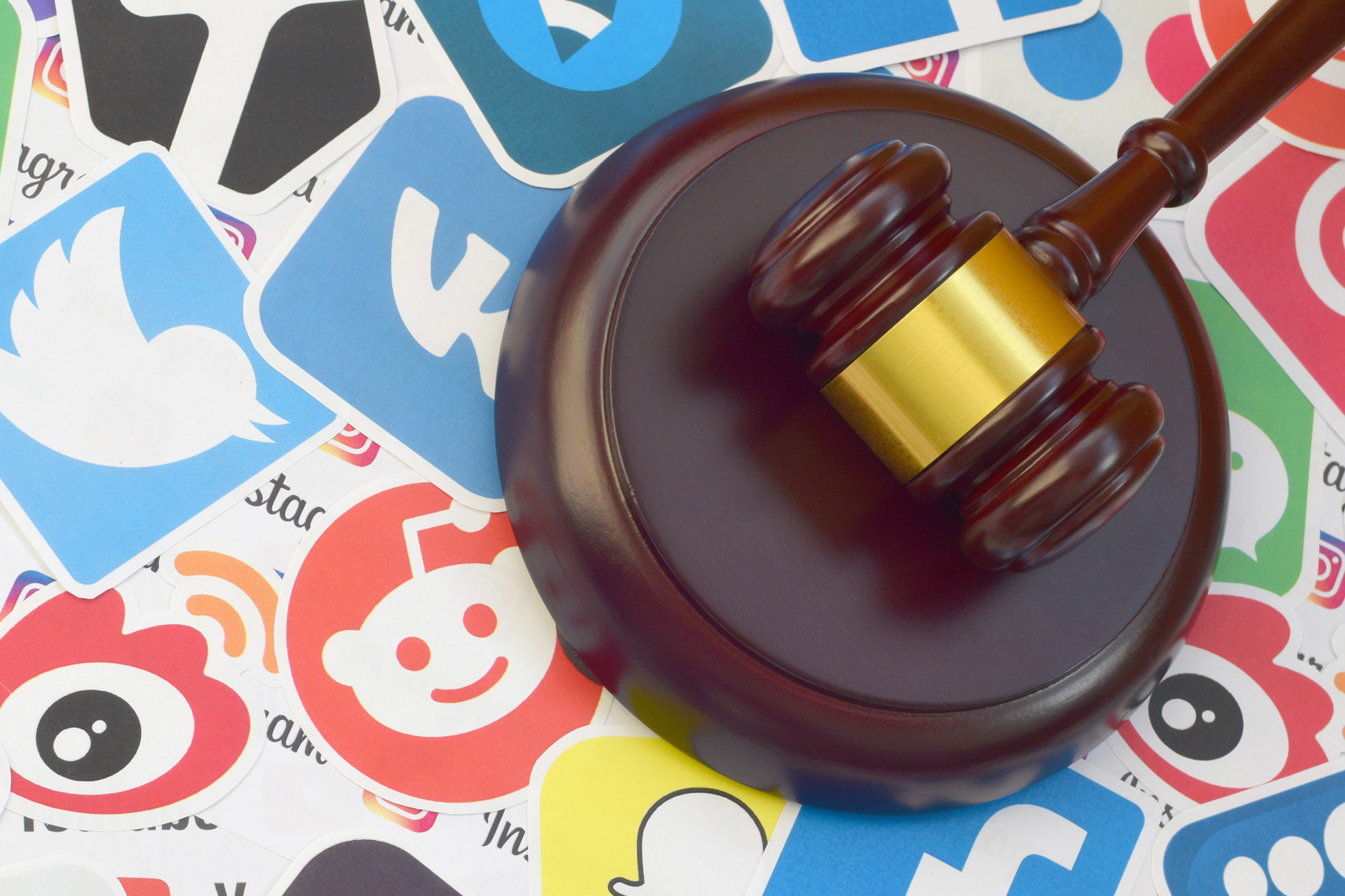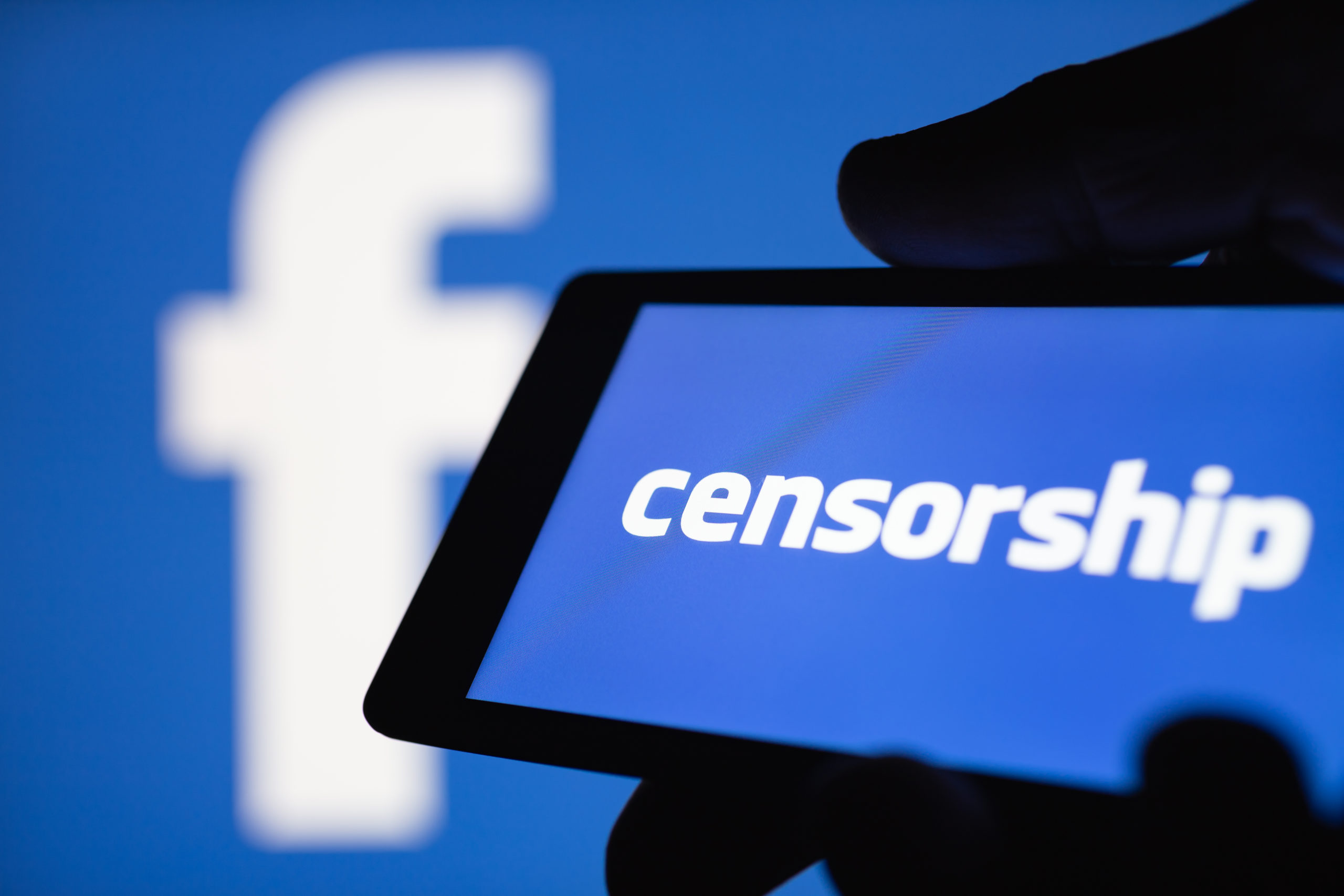Why Hiring an Internet Defamation Lawyer Could Be the Right Move
These days, many of us live part of our lives [...]
Can You Sue an Anonymous Author for Libel? What You Need to Know
The internet makes it easy for anyone to post content [...]
What Does an Internet Law Firm Do? How We Protect Your Online Reputation and Business
How RM Warner Protects Your Online Reputation and Business Navigating [...]
Instagram’s Terms of Service: What You’re Really Agreeing To
Are you guilty of clicking "I Agree" to the terms [...]
Privacy Concerns on Instagram: Your Rights and How to Safeguard Your Information
Do you enjoy sharing memories with your followers on Instagram? [...]
Defamation on Instagram: How to Handle False Claims and Protect Your Reputation
Social media platforms like Instagram have created numerous opportunities for [...]
E-commerce Regulations Every Online Business Must Follow
E-commerce continues to grow in the global business landscape. According [...]
Legal Strategies for Protecting Your E-commerce Business’s Intellectual Property
Your e-commerce business is more than just products and services [...]
The Importance of an E-commerce Lawyer for Online Businesses
Running an online business is exciting but comes with many [...]
The Role of Terms and Conditions in E-commerce: Why You Need a Lawyer
Strong terms and conditions aren’t just formalities—they’re your shield against [...]
What is The Statute of Limitations in My State? – State Defamation Law Chart
The statute of limitations sets the time frame within which [...]
Resources for Non-Consensual Pornography
What is Non-Consensual Porn? Non-consensual pornography, also known as revenge [...]
Deepfakes: The Rising Threat to Truth and Privacy in the Digital Age
In the era of rapidly advancing technology, deepfakes have emerged [...]
Mastering Defamation Defense: In-Depth Strategies from RM Warner
Accusations of defamation can be daunting and stressful. Understanding your [...]
E-commerce Law: Adapting to Global Trends and Regulatory Changes in 2024
In the dynamic digital commerce landscape, e-commerce law is a [...]
The Comprehensive Guide to Handling Defamation in the Era of Social Media
The power of social media is undeniable. It connects us [...]
Advanced E-commerce Legal Strategies: Navigating New Challenges in 2024
The e-commerce industry is witnessing remarkable growth and transformation in [...]
Overcoming Online Defamation: RM Warner’s Legal Advice
The internet offers endless opportunities for growth and connection. However, [...]
E-commerce Intellectual Property: Legal Protection with RM Warner
Protecting your intellectual property (IP) in the e-commerce space can [...]
RM Warner: Defending against Defamation in Social Media
Social media undeniably expands the reach of business owners, marketers, [...]
Building a Legally Sound E-commerce Business with RM Warner
In the fast-paced world of e-commerce, entrepreneurs and business owners [...]
Defamation in the Digital Age: Legal Insights from RM Warner
On the internet, where perception is reality, defamation poses a [...]
E-commerce Compliance: How RM Warner Ensures Legal Safety
The internet has opened up opportunities for business owners, marketers, [...]
Is Sean Combs the Rap Industry Jeffrey Epstein?
How Did Diddy Get Famous? Sean “Diddy” Combs started out [...]
The Role of an E-commerce Lawyer in Today’s Digital Marketplace
These days, the rapid growth of online marketplaces means many [...]
Combatting Defamation: Legal Strategies from RM Warner
Reputation is everything in the business world. A single false [...]
Internet-Based Startups: Legal Best Practices with Insights from Internet Lawyers
Starting an online business can be exciting. As an e-commerce [...]
Cybersecurity and Data Privacy: The Role of an Internet Attorney
The internet has revolutionized how we do business and connect [...]
Intellectual Property Protection in the Digital World: How Internet Lawyers Can Help
In the rapidly evolving landscape of the digital world, safeguarding [...]
Online Business Compliance: Navigating Legal Complexities with an Internet Attorney
The internet provides entrepreneurs and businesses with countless opportunities to [...]
E-commerce Contracts and Compliance: Guidance from E-commerce Attorneys
E-commerce Contracts and Compliance: Guidance from E-commerce Attorneys Over the [...]
International E-commerce Challenges: Navigating Legal Hurdles with an E-commerce Attorney
International e-commerce is the digital exchange of goods and services [...]
The Legal Ramifications of False Advertising in E-commerce
The digital marketplace has revolutionized the way we do business. [...]
E-commerce Legal Essentials: How an E-commerce Attorney Can Safeguard Your Business
As your online business grows, it may become more complex [...]
How Can Internet Laws Affect My Business?
In the world of e-commerce, entrepreneurs must stay up-to-date on [...]
Mastering the Art of Responding to Online Blackmail: A Step-by-Step Guide
In today's digital age, online blackmail has become an all-too-common [...]
What to Do If Someone Is Tarnishing Your Reputation
In today’s constantly changing environment of both online and offline [...]
Is It Difficult to Win a Defamation Case?
It has become increasingly difficult to control the speed at [...]
What Are the 7 Types of E-Commerce?
Electronic commerce, or e-commerce, refers to the buying and selling [...]
How Do You Win a Defamation Lawsuit?
In the dynamic world of business and entrepreneurship, maintaining a [...]
The Ultimate Defamation Guide
Did you know that not all speech is free speech? [...]
How to Sue for Defamation
In today's world, with everything connected through the internet, it's [...]
What Are the E-Commerce Regulations?
In the rapidly evolving realm of online business, e-commerce opens [...]
What Is the Test for Defamation?
As a business owner, protecting your reputation is vital in [...]
Making Effective Disclosures in Digital Advertising: A Guide for Business Owners and Marketers
In the fast-paced world of digital advertising, it's crucial for [...]
Trademarks for E-Commerce: The Complete Guide
In the vast and competitive e-commerce landscape, many businesses are [...]
Main Legal Issues to Consider When Running an Online Business
Running an online business offers incredible opportunities for entrepreneurs and [...]
Protect Your Business from Data Privacy Litigation
In the digital age, where information flows freely, data privacy [...]
Process of Suing a Former Employee for Defamation
When a former employee makes false statements about their former [...]
Can an Employer Sue an Employee for Defamation of Character?
We live in an era where it's increasingly difficult to [...]
The Right Steps for Removing Defamatory Content from Google
In today's digital age, online reputation is everything. With the [...]
What You Need to Know about Bringing a Defamation Lawsuit
As a business owner or entrepreneur, your reputation is everything. [...]
Copyright, Trademark, Patent, or License? Understanding the Differences
If you have a business that revolves around producing creative [...]
The Importance of Bylaws When Incorporating Your Tech Startup
As a tech startup, incorporating your business is an important [...]
5 Essential Agreements Every E-Commerce Site Should Have
Businesses operating e-commerce websites should ensure that they have agreements [...]
How to Copyright Your Software Idea: 4 Main Steps
If you have developed a new software idea, you’ll want [...]
10 Reasons Why You Need a Start-Up Lawyer for Your Online Business
Your vision is coming to fruition, and you’re ready to [...]
Anonymous Blogging and Defamation: Balancing Interests of the Internet
We live in the information age; technological advancements have completely [...]
In Cases of Internet Defamation, Where Can You Sue?
While the internet provides a great platform to connect with [...]
The Statute of Limitations for Defamation Action
When someone says or publishes false or derogatory statements about [...]
PSA to Business Owners Nationwide: Fake Reviews on the Rise!
Business owners beware! Fake reviews are on the rise, particularly [...]
Defamation in the Workplace: How Do You Protect Your Reputation?
Defamation is the use of false and malicious statements to [...]
Social Media Law: Things You Need To Consider
Social media began in the early 2000s and has grown [...]
5 Steps to Protect Your Online Reputation
Your reputation is formed by how people perceive you, good [...]
How to Protect Your Intellectual Property
Creative ideas are on display all around us—they may include [...]
Online Business Laws You Need to Know for Your E-Commerce Website
The world of e-commerce has grown exponentially, as buying and [...]
When Should You Hire a YouTube Lawyer to Help With Your Channel?
Legal support is important when operating a YouTube channel, especially [...]
Removing Content About Yourself From the Internet
We are in an age when it is almost impossible [...]
What Can Lawyers Do About Negative Online Reviews?
Product or service reviews are common occurrences when operating a [...]
Why Hire a Lawyer for Your Online Small Business
Whether your online small business is just starting or is [...]
Advertising Law: Everything You Need to Know
Advertising is one of the driving forces behind the growth [...]
TikTok and the Law: Music, Copyright, and Ownership
TikTok’s popularity soared to new heights during the COVID-19 pandemic, [...]
Can a Victim of Cyberbullying Sue for Future Damages?
Cyberbullying is a fairly new phenomenon whose emergence is linked [...]
What is Washington’s Anti-Slapp Law?
Washington’s new anti-SLAPP law, a version of the Uniform Public [...]
What Will Your Lawyer Do in a Defamation Lawsuit?
Defamation is false communication that hurts a person’s reputation. It [...]
Suing on Social Media: What You Need to Know
Social media platforms provide an opportunity for many to have [...]
Internet Law: Everything You Need to Know
The internet presents a world of possibilities that was almost [...]
Defamation: Libel and Slander
Defamation, slander, and libel all refer to when someone communicates [...]
How Can Influencers Benefit From Hiring a Social Media Lawyer?
As of the mid-2010s, being a full-time influencer became an [...]
Defamation on Social Media: What Can You Do About It?
Social media platforms have provided an opportunity for the voiceless [...]
Defamation, Libel and Slander: What Are Your Rights to Free Expression?
One of the benefits of living in a democratic society [...]
10 Reasons to Hire an Internet Law Firm Before Launching Your E-Commerce Site
In today’s digital world, every business needs to have an [...]
What the Law Can (and Can’t) Do About Online Harassment
We’ve all seen nasty comments targeting other people online. Perhaps [...]
The Legal Guide to the Beauty Industry for E-Commerce Companies & Beauty Influencers
The beauty and personal care market is expected to grow from $511 billion in 2021 [...]
Section 230 Can’t Save Snapchat From This Lawsuit – Parents of Son Who Died Speeding Blame Snapchat’s MPH Feature
Can section 230 save Snapchat from a lawsuit? The popular [...]
Influencers, NFT, and BitClout: Legal Insight From an Internet Lawyer
[vc_row][vc_column][vc_column_text] NFT Meaning Recently, Influencers, like Paris Hilton and Jake [...]
Anti-SLAPP Laws (Statutes) Explained By A Defamation Lawyer – Anti-SLAPP Laws Can Help Get A Defamation Lawsuit Against You Dismissed
What is Anti-SLAPP? Anti-SLAPP laws were created to dismiss SLAPP [...]
A Defamation Lawyer For Lawyers
Has someone posted false damaging content about you or your [...]
Top Five Things Every E-Commerce Entrepreneur Needs To Know
Thinking of starting an online business or launching your own [...]
Timeline of Britney Spears’ Conservatorship Battle
What Happened to Britney Spears? A detailed timeline of all [...]
How Do I Sue An Anonymous User for Defamation or Copyright Infringement? John Doe Lawsuits Explained
Someone is harassing you online – or perhaps infringing your copyrighted content – but [...]
Can I Sue Someone For Leaking My ‘OnlyFans’ Content?
OnlyFans is a website where users can pay to view [...]
Cardi B Tattoo Trademark Trouble
Rap superstar Cardi B is going to trial... over a [...]
Dr. Dre’s Divorce Battle Ain’t Nuthin’ But a “G” Thang: Nicole Young Fights for the Intellectual Property Rights to Dr. Dre’s Name
Dr. Dre and his wife of over 24 years are [...]
Section 230 Reform – Why Tech CEO’s Are Against The Trump Administration’s Proposed Changes
Section 230 of the Communications Decency Act is a statute [...]
Going Viral, Gone Bad: What Do You Do If Defamation Goes Viral?
Congratulations! A video of you just went viral! But is [...]
#FreeBritney: Britney Spears Conservatorship Legal Battle Explained By An Influencer Attorney
What Happened to Britney Spears? Britney Spears has been placed [...]
Proposed Section 230 Legislation May Benefit Defamation Victims
On Wednesday September 23rd, 2020, The Department of Justice sent draft [...]
U.S. Expands The Clean Network Program in Efforts to Stop Chinese Interference & TikTok
On Wednesday, August 12th, Secretary of State Mike Pompeo announced the [...]
Here’s How TikTok Could Be Banned from the U.S.
If you haven’t already heard, many people on the Internet [...]
What Does a DMCA Takedown Mean?
The Internet and all that it encompasses is full of [...]
Dive into Deepfakes – Can You Sue For Defamation Over A Deepfake?
Deepfake technology is a frightening thing! While there are certainly [...]
The COPPA Law Explained
Before the Internet came into full swing, parents were mostly [...]
Consequences of Hacking into Someone’s Facebook Account: Social Media Law
Social Media attorneys explain the real-life legal consequences of hacking [...]
FTC Legal Advertising Guidelines for Social Media Influencers
Are you a social media influencer that promotes products? Do [...]
How to Market Supplements and Other Wellness Products
Supplement marketers: watch your mouth! Consider these legal tips for [...]
What Is Actual Malice In A Defamation Lawsuit?
What is actual malice in a defamation lawsuit? If you [...]
Cyberbullying Lawyer: How to Sue for Cyberbullying with Defamation Laws
Cyberbullying is a growing epidemic, not only in the United [...]
Cyberbullying Statistics and Solutions
The internet is more accessible now than ever before! However, [...]
Can I Sue An Anonymous User for Defamation? How To Uncover An Anonymous Alias Online
Imagine waking up one morning to dozens of text messages [...]
Top Defamation Defenses
Are you being sued for defamation? Searching for a solid [...]
Customer Review Defamation Lawsuit: Ripoff Report Case Study
Have you ever used the website Ripoff Report to write [...]
Top Ten Things Marketers Need To Know About Fake Reviews
Are you a marketing or public relations professional seeking to [...]
Your Guide To E-Commerce Law
E-commerce law is more important than ever. As the Internet continues [...]
Ripoff Report Removal: “VIP Arbitration Rules” Established For Defamation on Ripoff Report
Ripoff Report is a consumer review website that houses millions [...]
YouTube FTC Settlement: Child Privacy Violated On YouTube Costs Google Millions, But Will It Make A Difference?
YouTube is in BIG trouble with the FTC for violating the [...]
How To Identify Fake Reviews Online – Fake Reviews on Amazon and Yelp Are On The Rise
In the age of the internet, online reviews are one [...]
Fake Reviews and Fraudulent Accounts on Airbnb: Next Steps for Airbnb and Tips for Customers Booking their Next Trip
Can You Get Scammed on Airbnb? Fake reviews have been [...]
Offset Invests in Esports Organization Faze Clan
Given the money that is pouring into the esports industry, [...]
Nicholas Sparks Sued for Defamation: Final Verdict
Sparks were not flying in court on Wednesday, August 14th, [...]
Sarah Palin Sues The New York Times for Defamation: Can She Win?
In June 2017, The New York Times published an editorial [...]
Mass Shootings in The U.S.: Who is to Blame? 8Chan, Social Media, Video Games, or The Communications Decency Act?
On Saturday, August 3rd, 2019, a gunman stormed into an [...]
The Controversy Surrounding Section 230 of the Communications Decency Act
For years, politicians have been discussing the possibility of changing [...]
Top 10 “Game Killers” For Startups & How to Avoid Them!
Startups, startups, startups! Is your aspiration in life to create [...]
Can I Sue for Defamation?
Can I Sue for Defamation? Have you or your company’s [...]
Esports Law: What You Need to Know
Are you an eSports athlete or wondering what a correct [...]
Evidence of Emojis in Court: Can An Emoji Be Defamation or Harassment?
Despite emojis first appearing in the late 90s, they wouldn't [...]
The Chronicles of Jeffrey Epstein & Ghislaine Maxwell: Underage-Girls, Sex-Trafficking, & Defamation
The Jeffrey Epstein Case Jeffrey Epstein, the wealthy and successful [...]
Does Big Tech Need to Be Held Accountable?
Section 230 of The Communications Decency Act of 1996 protects [...]
Angry Trolls Turn Profit: The Side of the Internet Where Rage and Controversy Sells- From Angry Gamers to Dramatic Makeup Artists
It's no secret people like to complain- especially on the [...]
Defamed Dad: Britney Spears’ Father Sues #FreeBritney Blogger for Defamation
Since 2008, Britney Spears’ father, Jamie Spears, has been in [...]
SiriusXM Host Gets Justice for Defamatory Comments Made Against Him On A Neo-Nazi Website
Who is Dean Obeidallah? Dean Obeidallah, host of the Dean [...]
A 12-Year Old eSports Pro Fortnite Streamer is Now Required to Stream with His Mother Present!
H1ghSky1 is a professional Fortnite streamer. He has almost a [...]
Johnny Depp’s $50 Million Defamation Lawsuit Against Amber Heard
Award-winning actor Johnny Depp was married to fellow actress Amber [...]
Arizona’s LLC Act: What You Need To Know
What is Arizona's LLC Act? Arizona's LLC act (Arizona Limited [...]
White House Launches Social Media Censorship and Bias Reporting Tool
The White House Censorship Tool A week after Facebook announced [...]
#ReleaseTheContract: Tfue Lawsuit Against FaZe Clan and it’s Future Impact on the Esports Industry
Turner “Tfue” Tenney, a professional Fortnite player and popular streamer [...]
Ariana Grande Paparazzi Lawsuit: Should Celebrities Have The Right to Post Photos of Themselves Without Permission?
Ariana Grande's Copyright Infringement Lawsuit Ariana Grande was sued for [...]
Defamation, Free Speech, & Racism: Oberlin College Lawsuit
In Ohio, Oberlin College is facing a civil lawsuit for [...]
Plane Crash Scandals Prompt Boeing to Reevaluate CEO’s Role
In October 2018, Lion Air Flight 610 crashed into the [...]
Social Media Censorship: Pros and Cons of Facebook Banning Extremist Speech
Free Speech Limitations on Social Media? Facebook has been making [...]
Top 5 Legal Tips for Marketing Dietary Supplements
Supplements. Supplements. Supplements. These days, it seems like there’s a [...]
Amazon Search Ranking Scams: The Black [Hat] Market
It’s no secret that the Amazon marketplace isn’t as easy [...]
California Supreme Court Reverses Anti-SLAPP Motion So FilmOn Libel Suit Can Proceed
Back in 2014, Media Post kept readers updated on the [...]
Michael Jackson Estate Sues HBO for $100 Million Over “Leaving Neverland”
The Michael Jackson Estate Sues HBO The life, career, and [...]
Sextortion Targets College Students in Idaho
Have you ever received a friend request or direct message [...]
Can Jussie Smollett be Sued for Defamation?
What Happened to Jussie Smollett? If you’ve been paying attention [...]
Deleting Violent Acts Caught on Camera from U.S. Websites
The speed and vastness of the internet is something that [...]
Social Media Deception? Instagram Hides Likes and Follower Counts
Does allowing users to hide their likes and follower count [...]
Law Day 2019: Free Speech, Free Press, Free Society
Happy Law Day! This year’s theme, “Free Speech, Free Press, [...]
Rick Fox Leaves Esports Organization, Echo Fox, after Racist Remarks from a Powerful Shareholder
Rick Fox is a man of many talents; professional basketball, [...]
Facebook’s Fight Against Fake News
Facebook is in the news, again. This time for continuing [...]
What’s a Public Forum in the age of the Internet?
The Public Forum Online Debate Under the First Amendment, the [...]
Diamonds are not the FTC’s Best Friend: Lab-Grown Diamond Companies Clash with the FTC
Diamonds: the symbol of love, the symbol of wealth; and [...]
Save the Sellers: Exploring the Amazon of the FBA Business
It truly is a jungle out there in the Amazon, [...]
The Price of Privacy
When social media was first introduced, the world was excited [...]
Free Speech vs. Government Censorship
When government officials block or remove comments from social media, [...]
Shopping Under the Influence – Drunk on Amazon
Drunk Amazon Shopping Online shopping has never been faster, and [...]
Facebook & The “F-Word”: Free Speech
What is a Public Forum? When the founding fathers first [...]
Papa John’s Saucy Corporate Takeover Issues
You’ve all heard of Papa John’s, one of the world’s [...]
Esports: The Future of Professional Sports
Esports Developments Two major professional sports teams just announced significant [...]




























